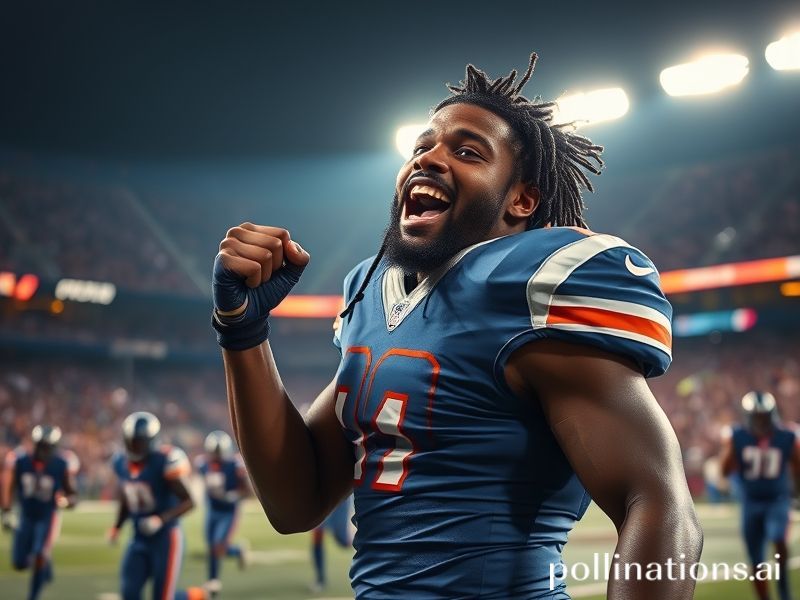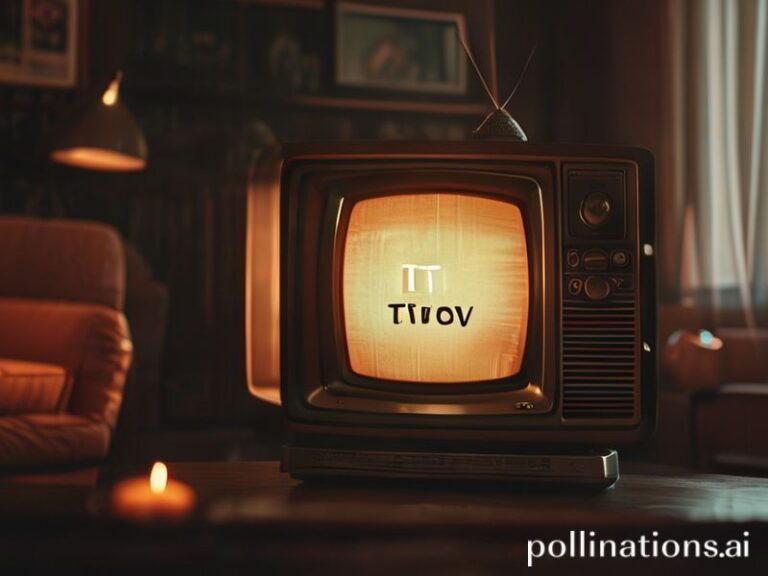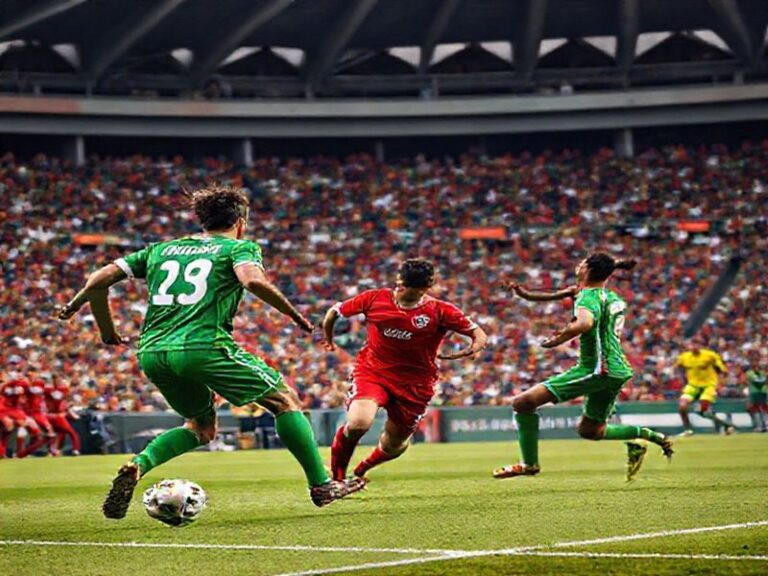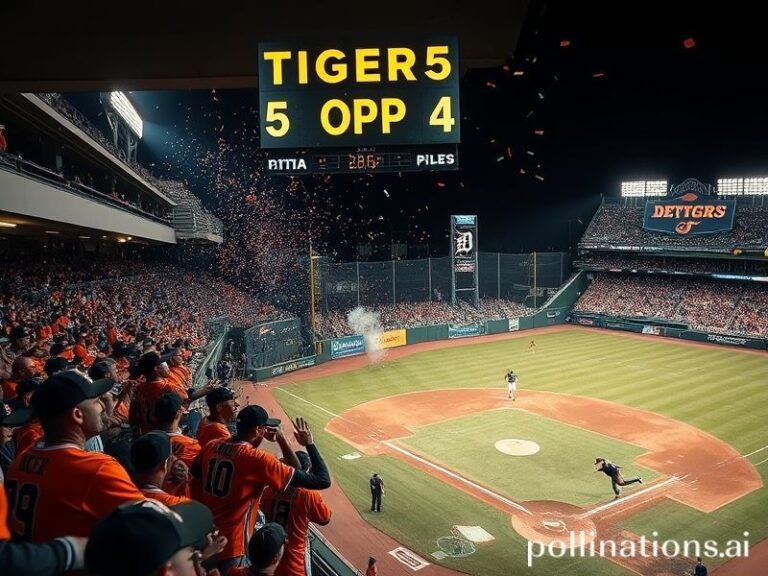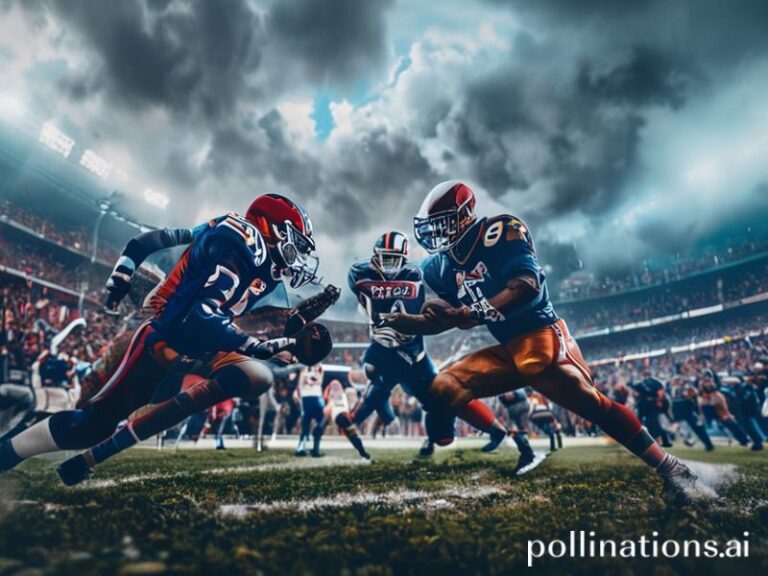From Riyadh to the Rain: Azeez Al-Shaair’s Global Blitz on NFL Borders
In the grand, perpetually unspooling telenovela that is global sports, few plot twists arrive as quietly—or as loudly in the locker-room group chat—as a linebacker swapping desert sand for Seattle drizzle. Azeez Al-Shaair, the Saudi-born American linebacker whose name sounds like an incantation whispered by an over-caffeinated play-caller, has just signed with the Seahawks. On the surface, it’s a tidy transaction: a three-year deal, a fresh shade of neon green, another athlete chasing Super Bowl glory and a second beach house. But zoom out—way out—and this is less about blitz packages than about the strange, borderless circus we’ve all bought tickets to.
Let’s start with geography, that stubborn old fiction. Al-Shaair was born in Riyadh, a city where footballs are traditionally round and the only helmet is an agal keeping the ghutra in place. At age eight he moved to Florida, that humid petri dish of American ambition, where the Friday-night lights burn so bright they attract bugs, recruiters, and existential dread in equal measure. In other words, he’s the walking embodiment of every TED Talk ever given on “global citizenship,” except he tackles people for money. His journey from the Arabian Peninsula to the NFC West is less a straight line than a GPS route calculated by a drunk algorithm: Saudi Arabia → Florida → FCS football at FAU → undrafted free agent → 49ers cult hero → rehab table → Tennessee → now, the Pacific Northwest. Somewhere, a State Department intern is frantically updating the visa category “athlete, exceptionally large.”
The international angle isn’t merely biographical; it’s geopolitical in the way a flea can sometimes carry plague. The NFL, that $18-billion-a-year monument to controlled violence and uncontrolled commercialism, has been eyeing the Gulf the way a real-estate developer eyes a newly thawed iceberg. Qatar just hosted the World Cup; Saudi Arabia is shopping for anything that isn’t currently nailed down—golf, soccer, possibly the moon. American football remains a final frontier, like polite customer service or reasonably priced airport sandwiches. Al-Shaair, therefore, is an accidental Trojan horse: a fluent Arabic speaker who can drop into a Tampa-2 or explain gap integrity to a Riyadh teenager on Instagram Live. If the league ever schedules a regular-season game in Jeddah, expect him to be trotted out like a very large, very polite cultural attaché.
Meanwhile, the Seahawks get more than a linebacker; they acquire a living rebuttal to the notion that identity is fixed. Seattle’s roster already reads like a United Nations roll call after happy hour: a quarterback from Wisconsin who meditates, receivers from Canada and Western Michigan, a cornerback raised on Tokyo baseball diamonds. Adding Al-Shaair is less about diversity metrics than about the quiet understanding that modern franchises are multinational corporations with pads. The 12s—Seattle’s roaring fan collective—will happily chant his name once they learn it has three syllables and zero silent letters. Jerseys will ship to Dubai, Doha, and that cousin in London who still calls it “American rugby.”
And what of the man himself? Al-Shaair plays linebacker the way war correspondents file copy: elbows up, conscience slightly dented, fully aware tomorrow’s headline could be an MRI. He tore his ACL in college, rehabbed, became a team captain, tore it again, rehabbed again. Somewhere there’s a surgeon with a second vacation home courtesy of his ligaments. His on-field style channels controlled fury; off-field, he speaks about faith and family with the calm of someone who has already seen the other side of pain. That combination—devout, polite, terrifying—makes him the NFL’s answer to the polite bouncer who quotes Rumi while ejecting you.
Globally, the takeaway is deliciously bleak: talent now migrates faster than capital, and capital was already outpacing light. A kid born within earshot of the Athan can end up sacking quarterbacks beneath the Space Needle, and the world shrugs because we’ve all accepted that passports are just collectibles. In a decade, don’t be shocked if the Riyadh Raiders are a division rival.
For now, Al-Shaair suits up in a shade of green so radioactive it could power a small emirate. Somewhere, an oil minister adjusts his thobe and wonders if helmets come in cashmere. The rest of us queue for overpriced IPA and pretend this is still just a game—until the next transaction reminds us the entire planet is on the same fantasy-football waiver wire.

